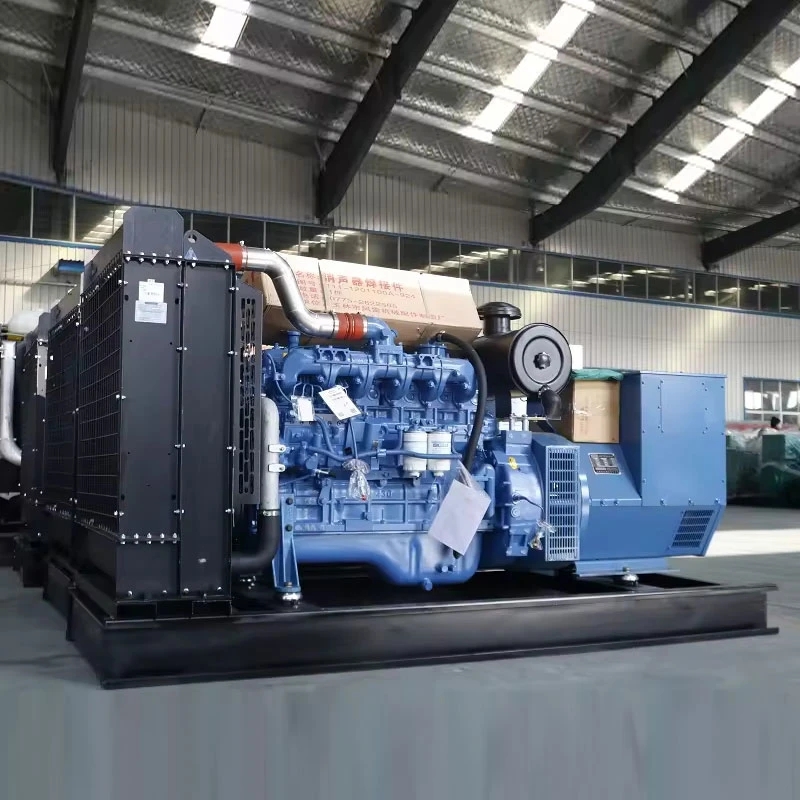Introduction
Construction projects, whether big or small, rely heavily on a steady and reliable source of power to operate various tools, equipment, and machinery. In situations where access to the main power grid is limited or unavailable, diesel generators play a pivotal role in ensuring uninterrupted power supply on construction sites. These rugged and dependable machines have become an indispensable part of the construction industry, providing the necessary power to keep operations running smoothly. In this comprehensive article, we will delve into the various aspects of diesel generators for construction projects, exploring their importance, functionality, benefits, maintenance, and best practices for optimal performance.
Importance of Diesel Generators in Construction Projects
Construction projects are dynamic and often require power for a wide range of activities such as lighting, heating, operating heavy machinery, power tools, and more. The ability to have a reliable power source on-site is crucial for meeting project deadlines, ensuring worker safety, and maintaining productivity. Diesel generators serve as a lifeline for construction sites by providing a dependable power supply independent of the grid. Their robust construction and high power output make them ideal for handling the demanding requirements of construction equipment and tools.
Functionality of Diesel Generators
Diesel generators work on the principle of converting mechanical energy into electrical energy through the combustion of diesel fuel. The main components of a diesel generator include the engine, alternator, fuel system, cooling system, and control panel. The engine, typically a diesel-powered internal combustion engine, drives the alternator, which generates electricity. The fuel system supplies diesel fuel to the engine, while the cooling system helps regulate the temperature of the engine during operation. The control panel is responsible for monitoring and managing the generator's functions, including starting, stopping, and load management.
Benefits of Diesel Generators for Construction Projects
1. Reliability: Diesel generators are known for their reliability and durability, making them the preferred choice for construction sites where continuous power is essential.
2. High Power Output: Diesel generators are capable of producing high power output, making them suitable for running heavy-duty construction equipment and machinery.
3. Quiet 400kW generator for industrial applications : Diesel engines are more fuel-efficient compared to gasoline engines, resulting in cost savings over the long term.
4. Easy Maintenance: Diesel generators are relatively easy to maintain and have longer service intervals, reducing downtime and maintenance costs.
5. Portability: Diesel generators come in various sizes and configurations, making them easy to transport and set up at different construction sites.
6. Versatility: Diesel generators can be used in a wide range of applications beyond construction projects, adding to their versatility and value.
Maintenance of Diesel Generators
Proper maintenance is essential to ensure the reliable performance of diesel generators on construction sites. Regular maintenance tasks include:
1. Checking and changing the oil and filters at recommended intervals to prevent engine wear and damage.

2. Inspecting the cooling system for leaks, proper coolant levels, and clean radiator fins to prevent overheating.
3. Testing and replacing the battery as needed to ensure smooth starting and operation of the generator.
4. Monitoring fuel levels and quality to prevent fuel contamination and ensure a steady fuel supply.
5. Conducting load bank testing to verify the generator's performance under full load conditions and identify any issues.
6. Keeping the generator clean and free of debris to prevent overheating and maintain optimal airflow.
Best Practices for Diesel Generators in Construction Projects
To maximize the efficiency and longevity of diesel generators in construction projects, the following best practices should be followed:
1. Size the generator appropriately based on the power requirements of the construction site to avoid under or overloading.
2. Install the generator in a well-ventilated and secure location to prevent overheating and unauthorized access.
3. Conduct regular inspections and maintenance checks to identify and address any issues before they escalate.
4. Keep spare parts, fuel, and maintenance tools on-site to address any emergencies or maintenance requirements promptly.
5. Train personnel on the proper operation and maintenance of the generator to ensure safe and effective use.
6. Consider investing in modern diesel generators with advanced features such as remote monitoring, automatic start/stop, and fuel efficiency technologies for enhanced performance.
Conclusion
Diesel generators play a critical role in powering construction projects by providing a reliable and efficient source of electricity. Their robust design, high power output, fuel efficiency, and versatility make them indispensable for construction sites where access to the main power grid is limited or unreliable. By following proper maintenance practices and best practices for diesel generators, construction companies can ensure uninterrupted power supply, increased productivity, and cost savings in the long run. As construction projects continue to evolve and expand, diesel generators will remain a cornerstone of the industry, driving progress and innovation in the built environment.
